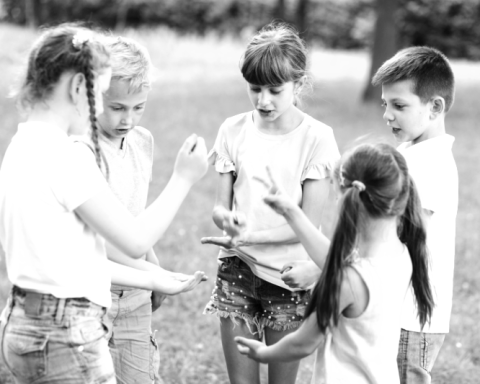It’s early morning. The alarm buzzes. The day begins with you and your child waking up, followed by a quick tidy-up and perhaps a shared breakfast. Those little moments are called family routines. They reflect how your family organizes, regularizes, and regulates your home environment.
In the rush of everyday life, it’s easy to overlook just how influential these habits can be. Yet, these quietly shape how children grow and learn. This modest foundation can have a big impact on your children’s growth and create a calmer, more connected home.
This article explores how these routines support your child’s emotional stability, cognitive growth, and strong relationships. It also offers parenting tips and everyday examples that can transform your home into a place where children thrive.
Curious how small routines can make a big difference? Keep reading.
How family routines influence child development
Why do routines matter so much for children?
Because children are wired to crave consistency. Predictable patterns help them feel safe and in control. Routines provide a sense of rhythm that helps children feel steady in a fast-moving world.
Studies show that regular family routines support:
- Emotional regulation
- Better academic outcomes
- Healthier social behavior
Explore each of these benefits more closely below.
Providing a sense of security and stability
Kids feel more at ease when they know what’s coming next. When things outside feel a bit unpredictable, having a reliable rhythm at home can really help your child feel anchored.
Family routines can make your child feel anchored by:
- Easing anxiety. A predictable flow to the day helps kids feel more settled.
- Supporting better sleep. Bedtime rituals help their minds and bodies wind down.
- Reducing meltdowns. Knowing what’s expected makes things feel less overwhelming.
- Building emotional strength. That regular rhythm helps them manage big feelings with more confidence.
Once that sense of safety is in place, your child begins to learn in deeper ways. That steady rhythm you’ve built also lays the groundwork for growing their thinking and social skills, and learning how to interact with the world.
Supporting cognitive and social skills
Ever notice how the little things — like brushing teeth at the same time every night or setting the table together — start to shape how a child thinks and interacts?
These habits lay the groundwork for how a child thinks, relates to others, and adapts.
When the routines stick, you may notice the cognitive and social skills improvement in your child, such as:
- Stronger communication and empathy skills
- Improved learning readiness in reading and math
- Better time management and everyday problem-solving
- Fewer behavioral issues and healthier peer relationships
And when these moments are shared, they strengthen bonds between you and your child. That’s where emotional habits come in.
Building emotional connections through shared habits
A bedtime story, a morning hug, or pancakes on Saturday — simple moments like these give your kids something to count on. You don’t need anything fancy. Just consistent, caring habits that help you stay emotionally close.
The emotional closeness you share with your child can benefit both of you in many ways:
- Build emotional security
- Encourage open dialogue
- Strengthen healthy attachment
- Provide stability in everyday life
- Create space for connection and reflection
When you do these small things regularly, they quietly become the glue that holds your relationships together. And overall? Your parenting skills will enhance, too.
Now, what can these habits actually look like in everyday life? Keep reading.
Read more: The Vital Role of Family Routines in Nurturing Healthy Family Relationships
Examples of effective family habits
Family routines don’t have to be complicated. What matters is that they’re consistent and meaningful.
The goal isn’t perfection. It’s the presence.
Here is what these routines look like in real life.
Morning routines to start the day with purpose
Mornings can either start with stress or intention. A strong morning routine sets the tone.
To make the morning joyful, try:
- Wake up at the same time every day
- Take a few minutes for quiet preparation
- Share a quick, healthy breakfast
- Use simple affirmations like “Today will be a good day.”
These small acts give children a sense of purpose. They also offer structure that helps them manage their energy and emotions before stepping into the outside world.
Family evening routines to wind down
The family evening routine isn’t just about bedtime. It’s about closure.
Winding down after a long day provides emotional space to reflect and connect. Simple rituals like these work well:
- Set a consistent wind-down time
- Put away screens to encourage connection
- Read together or share a quiet hobby
- Ask each family member one thing they enjoyed that day
- Follow a calming hygiene routine
- Use dim lighting to cue rest
- End with a hug, phrase, or gratitude practice
These small habits help transition from busy days to restful nights. Over time, they build trust and create emotional safety.
Weekend rituals for fun and bonding
Weekends give your family the free time to allow for creativity. Use that space. Try:
- Going for nature walks
- Cooking meals together
- Playing collaborative games
- Volunteering or doing a small project as a team
- Creating art or crafts together
These family habit examples reinforce teamwork, communication, and joy. Over time, they become treasured memories and lifelong values.
Read more: Children’s Resilience: What it is and How it Can be Developed
Tips for creating and maintaining family routines
Creating a family routine doesn’t have to feel like a major project. The goal is to build something that works for you and your family without adding extra stress.
Keep it simple, keep it consistent, and let it grow naturally.
Here’s the parenting advice to build routines that actually stick:
Start small and stay flexible
You don’t have to change everything at once. Just begin with one manageable step. Here are some suggestions:
- Create a weekly family calendar. Includes essentials like meals, schoolwork, and bedtime, but leave room for fun surprises like indoor picnics or last-minute park visits. This mix keeps your routine steady without feeling strict.
- If plans shift — like a playdate running late — adjust as needed. Just keep your child informed so they still feel secure.
- Stick with small rituals. Add rituals like bedtime stories or morning songs to your routine.
Involve children in the process
When kids feel part of the process, routines become easier to follow. This makes it easier for them to get on board as well, and you won’t have to wrestle with them every time.
Make it collaborative, such as:
- Ask what they think the day should look like. Don’t decide everything for yourself. Make room for their ideas. You might be surprised by what comes up.
- Let them choose the order of tasks. Like doing homework before or after a snack.
- Give them age-appropriate responsibilities. This will help build confidence and a sense of ownership.
Balance structure with spontaneity
Structure is important, but don’t forget to leave space for fun and flexibility. You can try:
- Add in occasional surprises. Do something they like spontaneously every once in a while: a zoo trip, themed dinner, or living room dance party every so often.
- Look for small moments. Then ritualize them intentionally. This will turn ordinary activities into something special.
- Try role-playing polite conversations during meals. Use phrases like “please” and “thank you.” You can also involve children as helpers or even ‘teachers’ when setting the table or cleaning up—this builds social skills and encourages teamwork.
Use digital tools thoughtfully
Screens are undeniably everywhere, and if not channeled mindfully, they can interfere with your parenting strategy. Healthy digital parenting tips can support your family routines without replacing real connection.
Use these tech below to support — not replace — the meaningful rhythms of your family routines:
- Shared calendars (Google Calendar, Cozi) to sync tasks and reminders
- Family communication apps for messaging and shared to-do lists.
- Meal planning tools to simplify prep and shopping.
- Screen time management apps to set limits and tech-free times
- Health trackers to manage symptoms, meds, and wellness records
- AI tools to assist with schedules, homework, and behavior tips
No routine will ever be perfect, and that’s okay. Just start small, stay consistent, and make it your own.
In conclusion
In the noise of modern life, daily routines can feel almost invisible. But they matter more than you think.
Family routines create the rhythm children need to feel secure. They support emotional growth, cognitive learning, and strong relationships. They describe healthy habits of the family that shape who children become.
Consistency doesn’t require perfection. It just needs intention.
Start by creating a family routine that brings calm, connection, and purpose to your daily life.
Let that habit grow into something bigger.
Because in the end, it’s not the big moments that define parenting success. It’s the small ones you repeat, every single day.
It is now your turn to describe the healthy habits of the family that fit yours.
If you want to see more resources on family routines, check out the Family Science Labs. The lab uses the research of the Institute for Life Management Science to produce courses, certifications, podcasts, videos, and other tools. Visit the Family Science Labs today.
Photo by Photobiz




